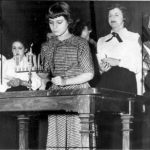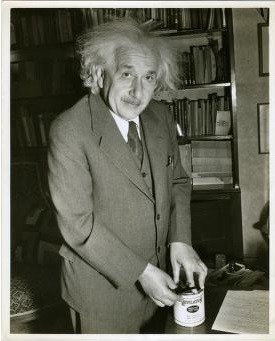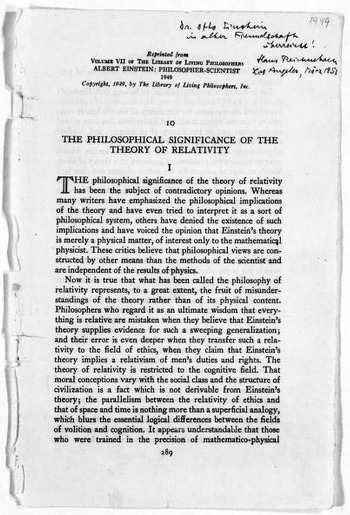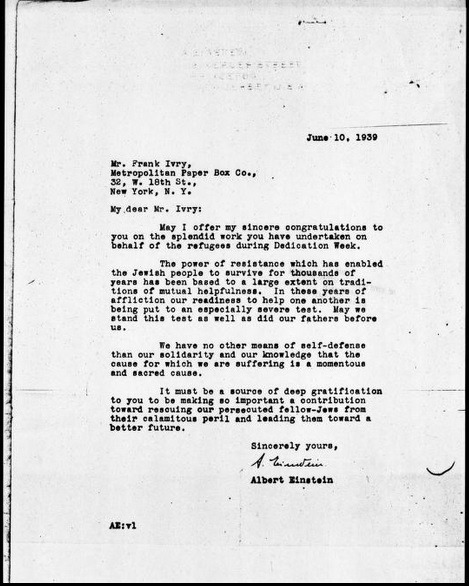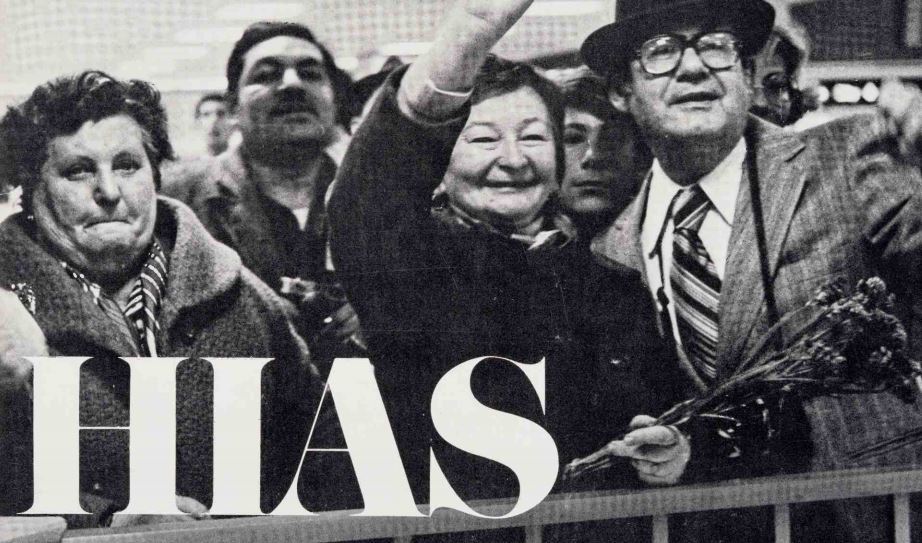Third Day
Hanukkah and Young Judea
by David P. Rosenberg, Senior Reference Librarian – Collections, Center for Jewish History
Above image: Lighting the Menorah at Young Judaea Event, circa 1940s-1950s. Hadassah Archives c/o American Jewish Historical Society.
Efforts to organize youth did not always take the pluralistic stance that Aleph Zadik Aleph did. The above photo is from a Young Judaea Event. Young Judaea is a Zionist youth organization founded in 1909. According the Encyclopaedia Judaica, its goals were “the advancement of the cause of Zionism; furthering the mental, moral, and physical development of Jewish youth; and the promotion of Jewish cultural ideas in accordance with Jewish tradition.”
The following passage is taken from a historical document from a guide for a similar program in 1939. The “Chanukah Manual” published by Young Judaea in October 1939 demonstrates the perspective of the organization and how it pursued its goals:
For the Older Chaverim…The significance of Chanukah goes quite beyond the simple story of the battle between Judas Maccabeus and the Greek armies apposing them. It was more than just a war of arms, and older Young Judeans can be made to see the significance of the real conflict in the light of present day conditions.
The real battle in the days of the Chashmonoyim was between Judaism and the new materialistic pj[h]ilosohy of the invaders, Hellenism. In those days, too, there were debates and arguments about assimilation, and the extent to which Jews should ape the culture of their new neighbors…
To a large extent American Jews are faced with the same problem today. We have in our own midst Jews who seek to abandon their Jewishness and embrace the customs, manners, culture and religion of those about them. They seek to assimilate….
Try these tests in your aguda and develop discussion
Who are the Hellenists, or the assimilationists among us today? Which of the following sentences describes characteristics which are extremely Hellenistic? Moderately Hellenistic? Not Hellenistic at all? Why?
1. Jews who change their Jewish-sounding names.
2. Jews who refuse to employ their fellow Jews.
3. Jews who never attend religious services.
4. Jews who join the Christian Science Church.
5. Jews who contribute large sums to secular philanthropy, but never to Jewish charities.
6. Jews who say: “We are Americans; we went nothing to do with Palestine.
7. Jews who receive no Jewish paper or magazine.
8. Jews who dislike Hebrew.
9. Jews who marry non-Jews.
10. Jews who celebrate Christmas.
11. Jews who hide their Jewishness to get a job.
12. Jews who constantly tell jokes at the expense of Jewish characteristics
The original document is archived in the National Jewish Welfare Board Records (AJHS).
Out of the Archives – Holidays from a Zionist perspective
Louis Lipsky, the American Zionist leader, journalist—author and founder of the Keren Hayesod, the Jewish Agency, and the American and World Jewish Congresses—penned Vice-Versa: a Chanukah play for Purim in 1907. The front matter states that the play was written “with a view to stimulating Zionist societies in America to undertake work of a similar nature in their own cities.”
The political motivations of the work are clear: “…but that’s no Purim song!… Introducer: We know it ain’t but (turns to the company, and with them): Aleph, Beth, Gimel, Daled, Hay, Vov, ZION ZION! Father what does that mean?… Zionist Fellers! We are the boys who believe in Zion, Zion!” (p. 12).
—–
Visit the Center for Jewish History’s website to begin your exploration of the collections: www.search.cjh.org.

